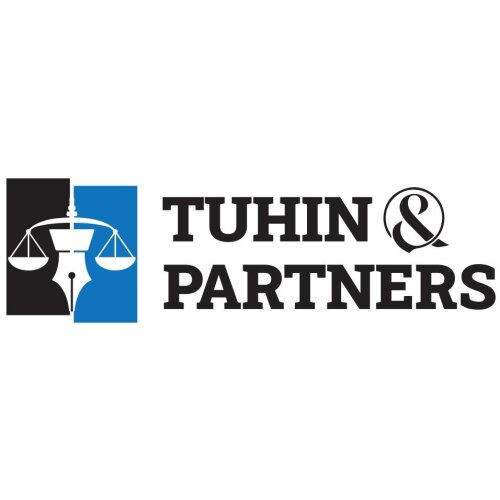Best Admiralty & Maritime Lawyers in Bangladesh
Share your needs with us, get contacted by law firms.
Free. Takes 2 min.
Or refine your search by selecting a city:
List of the best lawyers in Bangladesh

M. Elahi & Associates - A Registered Law Firm in Bangladesh
30 minutes Free ConsultationAbout Admiralty & Maritime Law in Bangladesh
Admiralty and maritime law in Bangladesh deals with legal matters related to maritime activities, including shipping, navigation, waters, insurance, and the employment of seamen. The country, with its strategic location and extensive coastline, engages significantly in marine and shipping activities. The law regulates commercial maritime issues, protects the maritime environment, and ensures the safety and security of navigation. Bangladesh's legal system in this field is primarily governed by the Admiralty Act 2000, alongside international conventions and treaties to which Bangladesh is a party.
Why You May Need a Lawyer
There are several situations where individuals and companies may require legal assistance in the area of admiralty and maritime. Common scenarios include:
- Disputes over maritime contracts, such as charter parties and bills of lading.
- Collision and salvage operations involving marine vessels.
- Maritime insurance claims and coverage issues.
- Enforcement of maritime liens and arrest of vessels.
- Environmental regulations compliance and penalties for maritime pollution.
- Personal injury claims of maritime workers under the context of maritime labor laws.
- Dispute resolution involving international shipping and trade.
- Registration and documentation of vessels.
A lawyer specializing in admiralty law can offer advice, negotiate settlements, and represent parties in litigation or arbitration related to these issues.
Local Laws Overview
Bangladesh's admiralty and maritime laws include several important features:
- The Admiralty Act 2000 is the primary legislation governing maritime issues in terms of legal procedures and jurisdictions.
- Bangladesh is a signatory to key international maritime conventions, including the International Convention for the Safety of Life at Sea (SOLAS) and the International Convention for the Prevention of Pollution from Ships (MARPOL).
- Local shipping regulations require that all vessels operating in Bangladeshi waters comply with national safety standards and crew competency certification.
- The Department of Shipping oversees the registration of vessels, ensuring compliance with international and national maritime laws.
- The judiciary in Bangladesh holds jurisdiction to hear maritime disputes, often resolved in the High Court Division of the Supreme Court of Bangladesh.
Frequently Asked Questions
What is admiralty jurisdiction?
Admiralty jurisdiction refers to the court's power to hear maritime cases and matters that involve ships and shipping activities, such as disputes related to accidents and contracts.
How can I arrest a ship in Bangladesh?
To arrest a ship, you must file an application with the High Court indicating that the vessel in question has a maritime claim against it. The court may issue a warrant to arrest the ship to secure the claim.
What are maritime liens?
Maritime liens are claims or privileges on ships in favor of creditors, that follow the ship even if it is sold to new owners, such as for unpaid wages of the crew.
How does Bangladesh handle marine pollution incidents?
Marine pollution is regulated under local and international laws. The Department of Shipping enforces regulations and can take action against the violators, including penalties and cleanup costs.
What insurance is required for vessels?
Vessels typically need insurance coverage for hull and machinery, protection and indemnity (P&I), pollution liability, and cargo insurance, depending on the operation's nature.
Can foreign nationals own ships in Bangladesh?
Foreign nationals can own ships in Bangladesh, but they need to comply with strict registration requirements and associated local and international regulations.
What is a Bill of Lading?
A Bill of Lading is a legal document issued by a carrier to acknowledge receipt of cargo for shipment, acting as both receipt and the contract for transportation, and it may serve as a title document.
What regulations cover crew employment on ships?
The employment of crew members is governed by the Merchant Shipping Ordinance and international labor standards, ensuring fair treatment, wages, and working conditions.
What are ship registries, and how do they work in Bangladesh?
Ship registries are official lists of ships authorized to fly a certain nation's flag. In Bangladesh, the Department of Shipping handles vessel registry subject to safety and regulatory compliance.
How is salvage law applied in Bangladesh?
Salvage law compensates for actions that aid in recovering a ship or cargo, incentivizing rescuers to engage in salvage operations. Claims are determined based on the value of salvaged property and the level of danger.
Additional Resources
For further assistance, individuals and companies can seek help from these organizations and bodies dealing with maritime law in Bangladesh:
- The Department of Shipping: Regulates shipping services, vessel registration, and safety compliance.
- The Bangladesh Shipping Corporation: Promotes and supports national shipping capabilities.
- Maritime Lawyers’ Association: Provides a network for legal professionals working in maritime law.
- International Maritime Organization (IMO): Offers resources and guidelines followed by Bangladesh for international maritime laws.
Next Steps
If you require legal assistance in admiralty and maritime matters in Bangladesh, consider the following steps:
- Identify your specific legal issue and gather all relevant documentation and evidence.
- Consult with a specialized maritime lawyer to discuss your case and explore your legal options.
- Engage a lawyer for pre-litigation advice and potential dispute resolution to avoid costly legal proceedings.
- If necessary, prepare for litigation or arbitration with guidance from your legal advisor.
- Continuously stay informed about changes in local and international maritime laws that may impact your case.
By following these steps, you can ensure that you are well-prepared to address your maritime legal challenges effectively.
Lawzana helps you find the best lawyers and law firms in Bangladesh through a curated and pre-screened list of qualified legal professionals. Our platform offers rankings and detailed profiles of attorneys and law firms, allowing you to compare based on practice areas, including Admiralty & Maritime, experience, and client feedback.
Each profile includes a description of the firm's areas of practice, client reviews, team members and partners, year of establishment, spoken languages, office locations, contact information, social media presence, and any published articles or resources. Most firms on our platform speak English and are experienced in both local and international legal matters.
Get a quote from top-rated law firms in Bangladesh — quickly, securely, and without unnecessary hassle.
Disclaimer:
The information provided on this page is for general informational purposes only and does not constitute legal advice. While we strive to ensure the accuracy and relevance of the content, legal information may change over time, and interpretations of the law can vary. You should always consult with a qualified legal professional for advice specific to your situation.
We disclaim all liability for actions taken or not taken based on the content of this page. If you believe any information is incorrect or outdated, please contact us, and we will review and update it where appropriate.
Browse admiralty & maritime law firms by city in Bangladesh
Refine your search by selecting a city.
















